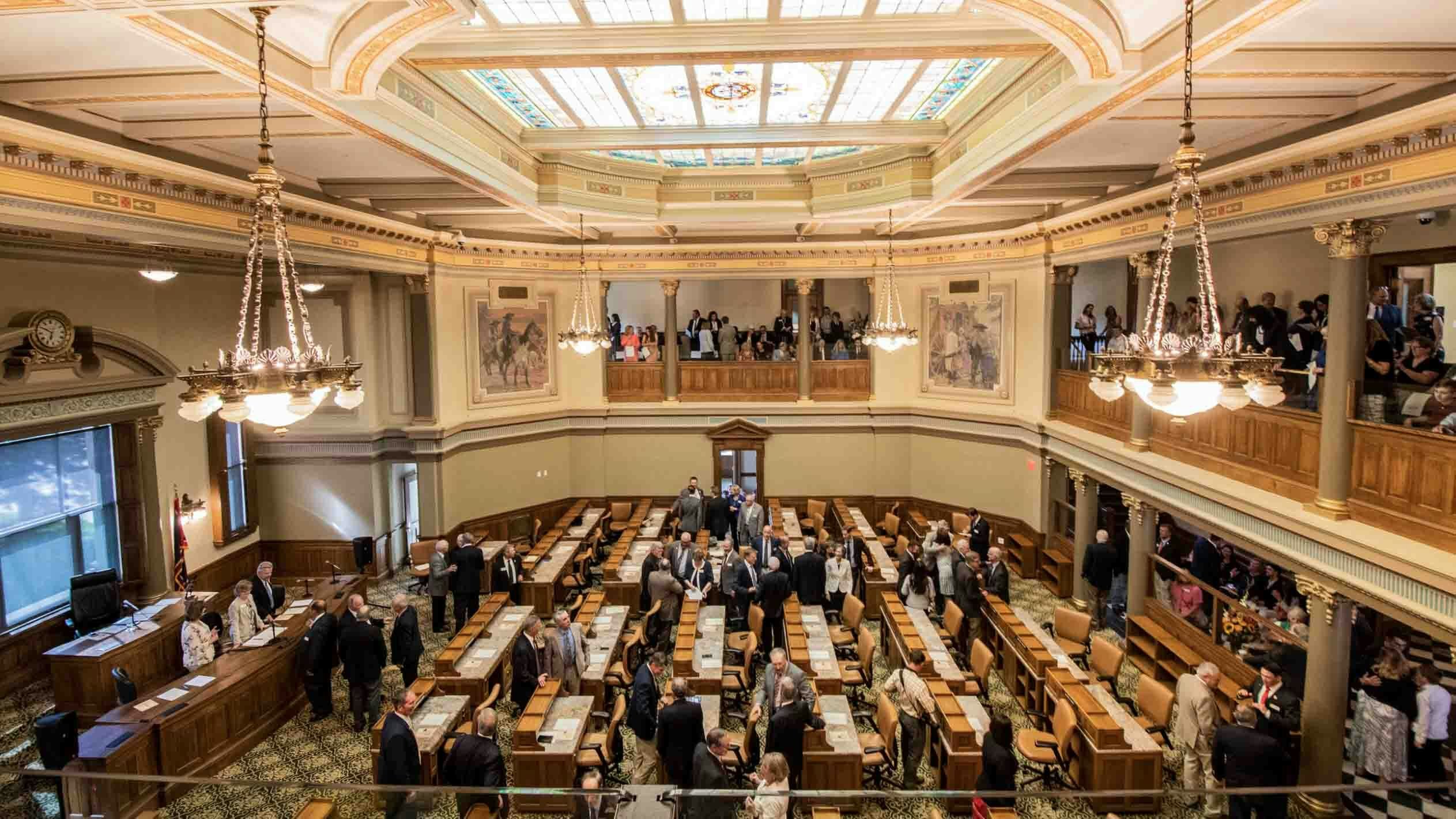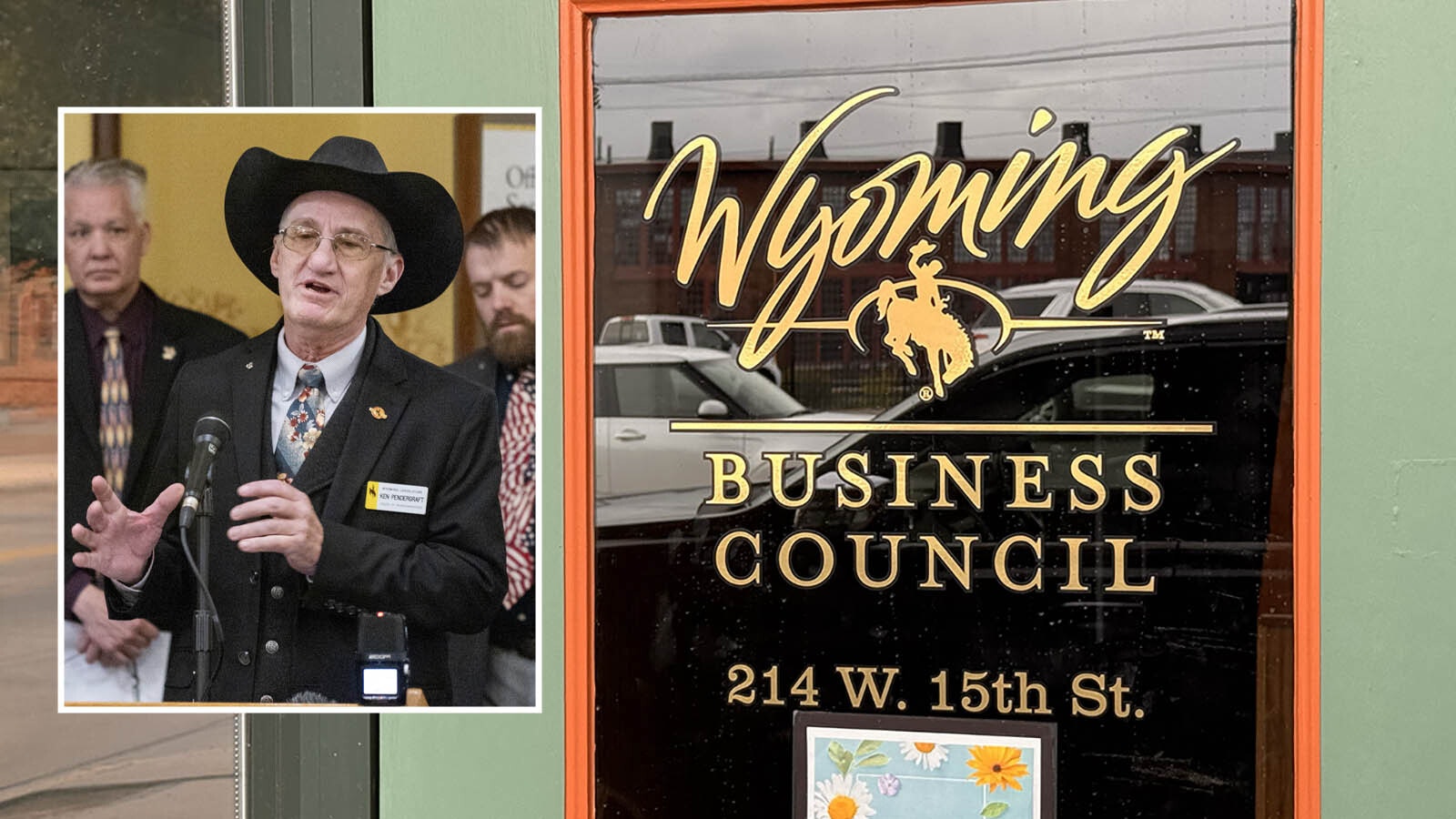Business leaders from across the state are urging legislators to proceed cautiously in their work on bills to temper a proposed federal coronavirus vaccine mandate.
More than 40 officials and representatives from numerous different businesses and industries spoke for more than five hours on Monday either in defense or opposition to the two bills in the Wyoming Legislature related to vaccine mandates.
The Senate Appropriations committee on Monday heard hours of testimony about HB1001 and HB1002 from people all over Wyoming.
HB1001 would prohibit employers with more than 100 employees or those that have contracts for services with the federal government or work with Medicare or Medicaid from making vaccination a condition of employment unless they could prove such a mandate is important for their business.
HB1002 would prohibit state and local entities from enforcing a vaccine mandate, but not take effect until the federal mandate is found unconstitutional.
Jeff Chapman, chief medical officer of Cheyenne Regional Medical Center, said HB1001 would make it difficult for his hospital to do business.
“My fear is the impact of the bill is going to create chaos,” he said. “As written, I think the impact is going to be chaos in terms of how we’re going to enforce it and how are we going to implement.”
Chapman raised concerns about religious exemptions, and suggested the bill allow employers to create a process to figure out what constitutes a religious exemption.
He questioned whether it would be enough to have someone state in a letter that they object to a vaccine due to religious reasons or if employers would have to go further and require some type of letter of confirmation from a clergy member.
Chapman said this has been an issue at the Cheyenne hospital and officials have tried to figure out how to deal with it.
Last week, a Banner Health employee in Worland testified that her religious exemption request to prevent getting the COVID vaccine was denied.
“I’ve been a born-again Christian since the age of 8,” Lorena Stewart said last week. “I think everybody was shocked when my request got denied. They want us to jump through these hoops, they didn’t want to make it easy.”
During his testimony, Chapman also suggested including some type of language in the bill about people getting medical exemptions to the vaccine.
Brett Glass, a small business owner in Laramie, told the lawmakers that there was nothing “good or useful” in either bill, and called on them to consider rejecting both.
“Neither actually nullifies anything that the Fed is likely to do,” he said. “They are both going to be superseded by the supremacy clause of the U.S. Constitution.”
He added that the legislators were fighting regulations with more regulations.
Mary Kate Buckley, president of the Jackson Hole Mountain Resort, also expressed concern about both of the bills. She noted that the resort employs 500 people year-round and more than 1,000 during the tourist season.
The resort also holds a contract with the federal government, due to it sitting on federal land.
“Following the law is very important to me, and as a leader, I need create clear expectations for my team at the mountain and we need to have an environment of certainty on how to operate our business on a day-to-day basis as a federal contractor,” she said. “Our federal contract status is critical to our business and we want to do everything we can to follow federal law, as well as Wyoming law.”
Nathan Anderson, a Union Pacific representative, also pointed out to the legislators that the railroad company is a federal contractor and will have to abide by the mandate. He said to avoid unnecessary and expensive legal battles, he proposed an amendment to HB1001, which would basically keep the bill from affecting federal contractors.
“This amendment helps to further move us toward both a safe operating environment and a recovery of our supply chain system,” Anderson said.





